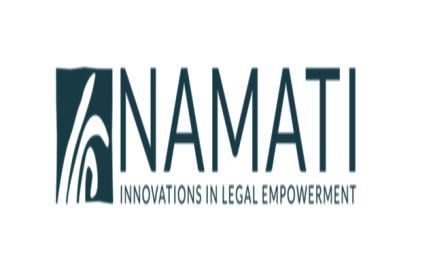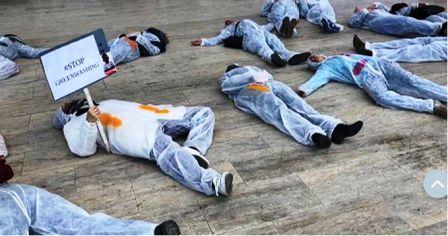Cameroon biodiversity hotspot in grave danger as palm oil conglomerate quits sustainability group
Yaounde, Cameroon: Sustainable palm oil development and a key biodiversity hotspot in Cameroon are under increased threat as the developer of a controversial 70,000 hectare palm oil plantation quits the key organization setting environmental and social sustainability standards in the global industry, WWF warned today.
WWF was one of a number of complainants to the Roundtable on Sustainable Palm Oil (RSPO) that US-based Herakles Farms had not adequately followed RSPO guidelines on new plantings designed to protect high conservation value forest and community interests. The RSPO had asked Herakles to suspend clearing while discussions concluded on the outstanding issues with WWF-Cameroon and the other 7 complainants.
Herakles’ decision to quit RSPO – announced yesterday by the RSPO – means that the 70,000 hectare plantation proposal for areas of high conservation value forest surrounded by national parks and forest reserves is no longer subject to the restraints and protections offered by the only globally agreed standard for the sustainable production of palm oil that is independently monitored and supported by global markets.
WWF and the other complainants had been seeking for Herakles to carry out an adequate High Conservation Value Assessment of the entire 70,000 hectare concession area before development started, as well as asking the company to address other issues including ensuring the respect for land tenure rights, the implementation of the free, prior and informed consent process and transparent communications with stakeholders.
”This is a very sad day for Cameroon,” said BasileYapo, Country Director of WWF Cameroon, “WWF believes that sustainable palm oil can be a reality in Cameroon but only if it is produced by responsible companies according to RSPO principles and criteria, supported by sustainable land use policies and involving local communities.
“It is clear that the Herakles project will likely fall short of these standards. Given the rapid pace and scale of palm oil development in West Africa, it is critically important that the governments in the region put in place vital safeguards to insure that these projects are sustainable.”
WWF is calling on investors to steer clear of any palm oil development by irresponsible companies in Cameroon and other frontier regions.
“Forests in the green heart of Africa are vulnerable targets for expansion, as palm oil companies look beyond Indonesia and Malaysia for new land to expand palm oil production,” said Adam Harrison, WWF International’s representative on the RSPO Executive Board. “WWF calls on investors to support only RSPO members who actively adhere to RSPO principles. Investors should also encourage development on degraded land in order to avoid further negative impacts by the palm oil business on forests, species and people.”
For further information contact:
Carrie Svingen, +49 151 188 54833, csvingen@wwf.panda.org
Background information
On September 4thit was announced that the American firm Herakles Farms have left the RSPO (Roundtable on Sustainable Palm Oil), a multi-stakeholder membership organization that seeks to transform the palm oil industry to sustainability. The RSPO requires its members to uphold strict environmental and social guidelines regarding the production and use of sustainable palm oil, which includes no conversion of valuable forest for new palm oil plantations. Herakles plans to develop a 70,000 hectare oil palm plantation in one of Africa’s biodiversity hotspots, covered by species-rich canopy forest and surrounded by four nationally protected forests. WWF regrets the company’s decision to leave the RSPO as it represents a setback for the Cameroonian government’s sustainable palm oil aspirations while seriously threatening one of the earth’s last remaining primary forests and the species and communities that depend on it.
In March 2012, WWF and 7 other organizations and individual complainants submitted comments to the RSPO about the actions of Herakles Farms. Greenpeace Cameroon also submitted a complaint, although this was outside the RSPO acceptance period. WWF and the other complainants are concerned that the company has not followed the RSPO guidelines governing new plantings and undertaken inadequate assessments of the quality of the forest area slated for development. They have also complained about Herakles’ alleged failure to respect the legal rights to the land, the lack of adequate social processes to involve the local communities in the project design and general poor communication and transparency. More detail on the complaint is available on the RSPO website: http://www.rspo.org/en/status_of_complaint&cpid=7
The rules of the RSPO Complaints Procedure state that the relevant members need to negotiate to resolve conflicts between themselves, so as RSPO members, both Herakles and WWF were obliged to resolve the complaint together. In assuming this obligation, WWF worked with other complainants and stakeholders that are not RSPO members to ensure all their issues were addressed. Over the course of several meetings, WWF and the other complaintants asked that Heracles undertake an adequate High Conservation Value Assessment of the entire 70,000 hectare concession area before development, as well as address other issues including ensuring the respect for land tenure rights, the implementation of the free, prior and informed consent process and better transparency in communication with stakeholders.
In leaving the RSPO, the company walks away from the only globally agreed standard for the sustainable production of palm oil that is independently monitored and supported by global markets. It also sets itself at odds with the Cameroonian government, which is committed to sustainable palm oil production and is currently in the process of defining its strategy on how to achieve this.
Earlier this year, WWF co-authored the Palm Oil Development in Cameroon report, organized the first ever palm oil roundtable dialogue in Cameroon, and organized a 3-day training session on sustainable palm oil for a cross section of stakeholders (including government, civil society and the private sector).
The report articulates WWF’s view that a palm oil project in Cameroon can be sustainable if it is located in a suitable site (suitable for oil palms and not containing HCV areas), involves the communities in its design, and follows the principles and criteria of the RSPO.
For a copy of the WWF report see: http://wwf.panda.org/what_we_do/footprint/agriculture/palm_oil/publications/?204509/Oil-Palm-Development-in-Cameroon
About WWF
WWF is one of the world’s largest and most respected independent conservation organizations, with more than 5 million supporters and a global network active in over 100 countries. WWF’s mission is to stop the degradation of the earth’s natural environment and to build a future in which humans live in harmony with nature, by conserving the world’s biological diversity, ensuring that the use of renewable natural resources is sustainable, and promoting the reduction of pollution and wasteful consumption.
WWF
Stay with Sierra Express Media, for your trusted place in news!
© 2012, https:. All rights reserved.





